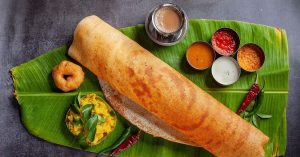Meet the Homesick Entrepreneur Bringing the Taste of ‘Real Kashmiri Food’ to South India
Authentic Kashmiri Wazwan is now available in Bengaluru, thanks to Srinagar's Azmat Ali Mir who launched 'Sarposh' to bring the true taste of Kashmir's cuisine to South India.
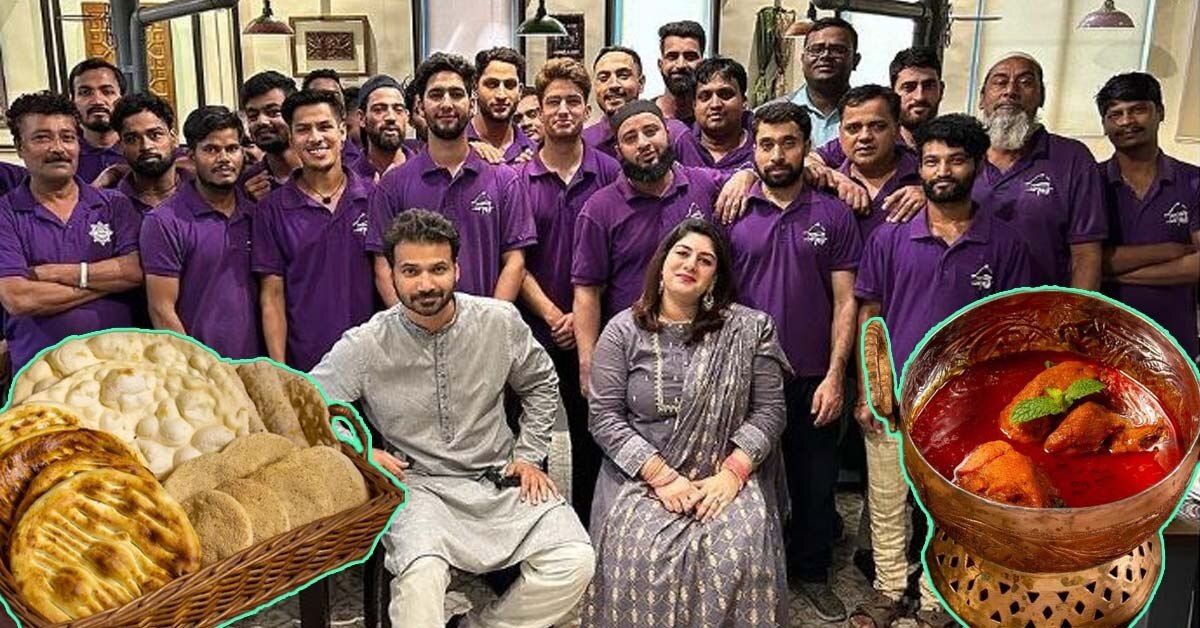
Cradled in the lofty green Himalayas, Srinagar is known for its scenic beauty, the picturesque Dal Lake, and the breathtaking mountain views. Growing up in this hilly town, Azmat Ali Mir has always been fascinated by the enchanting beauty of her homeland and its rich culture.
At a time when her peers wanted to become princesses, Azmat’s childhood fantasy was to become a travel journalist or own a caravan food truck and go around the city serving grilled hot dogs. Instead of watching cartoons, she would spend her day watching food channels, enriching her knowledge of Kashmiri delights.
But this fantasy got lost as she grew up. Azmat became a computer science engineer and moved to Bengaluru in 2018.
Fast forward to 2023, 30-year-old Azmat is now fulfilling her childhood dream with an eatery that offers authentic Kashmiri food that remains packed throughout the week with foodies. We sat down with her to trace her journey of opening a Kashmiri restaurant in Bengaluru.
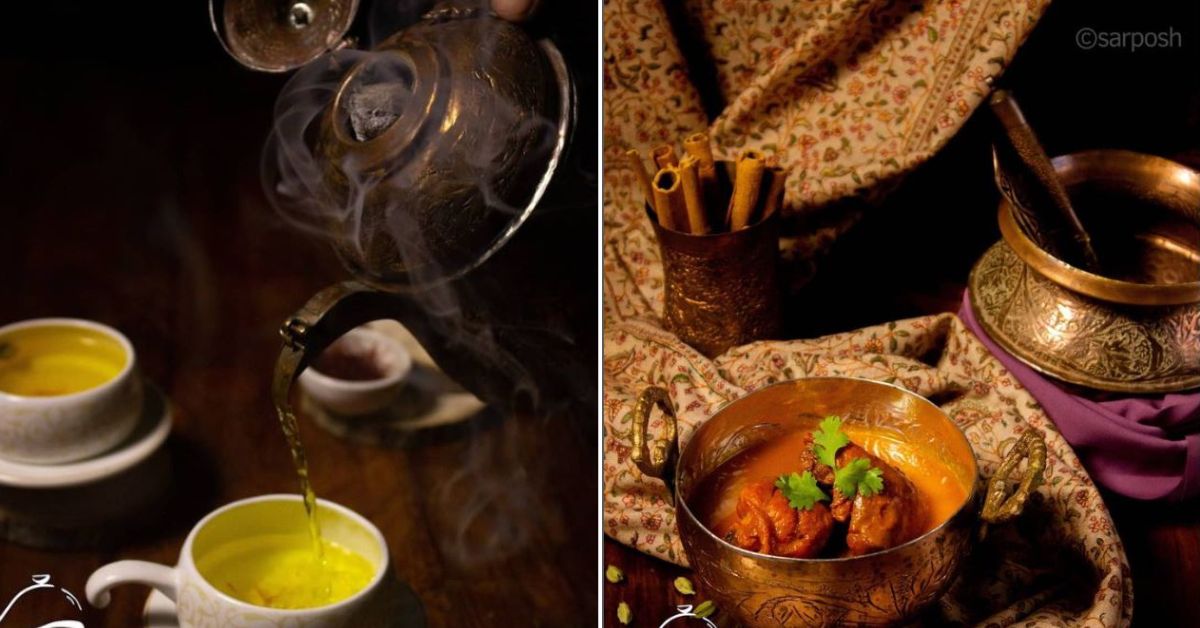
A reality check
Before moving to Bengaluru, Azmat was married into a non-Kashmiri family. She immensely missed her home and everything associated with it, especially its native food and language.
In the quest to be in touch with her roots, she started looking for restaurants that offered Kashmiri food in the city. “I visited a few places that claimed to serve traditional food but I would come back very disappointed. It was nothing close to what the real Kashmiri food was about,” she tells The Better India.
“Most of the restaurants claimed to serve Wazwan which requires a highly skilled food preparation style. If you miss out on one step, it will not taste the same. Gushtabae yakhein and ristae are two complex dishes to cook. In this, meat has to be pounded on a heavy stone slab using a walnut wood hammer. It is a labour-intensive process. People here use grinders which break the meat and the texture left is that of a kofta rather than a sausage,” she explains.
“Other than this, if I talk about Kashmiri pulao, people here serve it with pineapples and cherries. Whereas a real Kashmiri pulao is cooked in a bone marrow stock that gives it a savoury taste. It is then topped with dry fruits and nuts, not pineapples and cherries! What hurt me most was that people here did not wish to make any effort to understand the authentic method of preparation,” says Azmat.
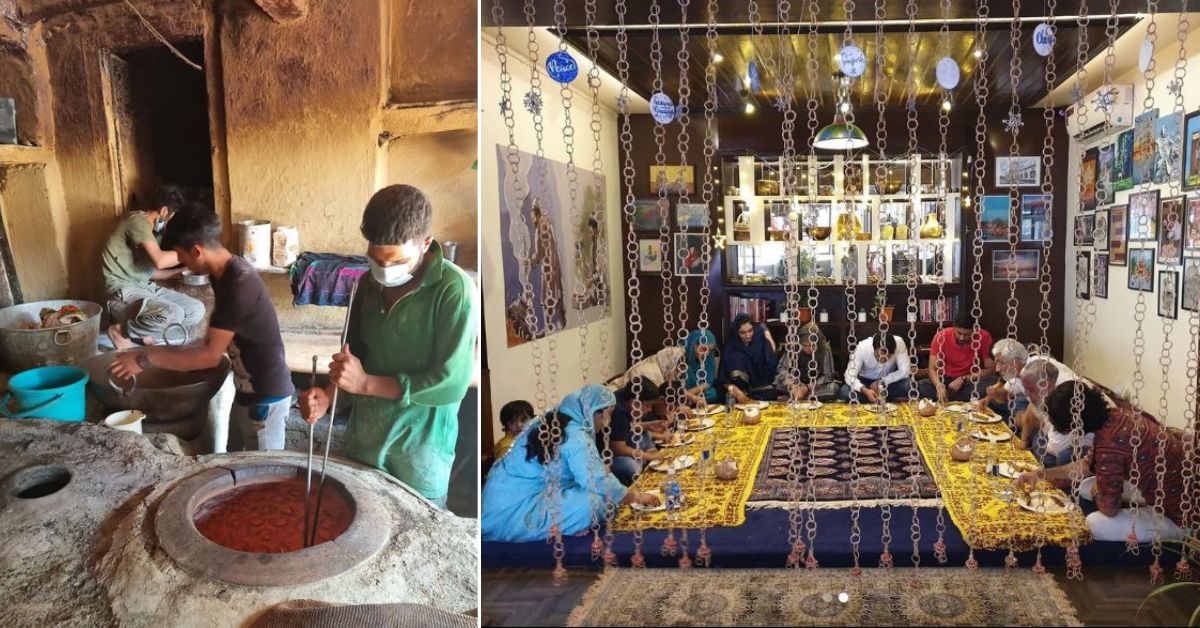
When Kashmiris unite outside of Kashmir
Meanwhile, there was no relief to Azmat’s longing for her homeland. So, in 2019, she decided to catch up with her college friends who were settled in the city. “I created a WhatsApp group but an hour later, 200 people joined the group. Later, this number grew much bigger than what I anticipated. I ended up hosting a ticketed event for 1,000 people,” she adds.
For this, Azmat not only sourced spices from Kashmir but also traditional bands, comedians, singers, poets, and chefs called Wazas from her wedding. “It was a massive success. It was the first time Kashmiris got together outside Kashmir,” she says with pride.
Taking this as an opportunity and an attempt to do her bit so that her region’s food is represented in a real authentic manner, Azmat launched Sarposh. The eatery offers a wide range of authentic Kashmiri delights from the multi-course meal Wazwan that comprises tabak maaz, methi maaz, seekh kabab, rogan josh, gushtabae yakhein, ristae, marchewangan kormeh, to kong kahwae, and more.
To ensure the food is prepared in a traditional manner, Azmat has employed 15 experienced Wazas from Kashmir and gets spices like cumin from Gurez, Kashmiri red chillies from Pulwama, saffron from Pampore, apricots from Ladakh, and walnuts from the homes of her team members.
Setting up a small Kashmir in Bengaluru
Besides food, Azmat tried to give a homely vibe with Sarposh’s ambiance. Set up on a 3,500 square feet area, the eatery imitates an extension of her Srinagar home. “We have given cosy spaces, a carpeted floor seating area, and a lounge area to relax. One should not feel that they are walking into a restaurant, but rather walking into a living room of a Kashmiri home,” she adds.
The eatery has also incorporated traditional craft items like walnut wood, papier mache, pashmina, and pottery, into the decor of the space.
Today, her 70-seater eatery remains packed with 100 percent occupancy in multiple rotations. But this feat was not as easy.
Looking back to the challenging phase of her entrepreneurial journey, Azmat says, “In 2019, I quit my job to dedicate myself to establishing this restaurant. But soon Article 370 was revoked and my team got stuck in Kashmir. I lost contact with my team along with all the money that I used to kick off the eatery,” she says.
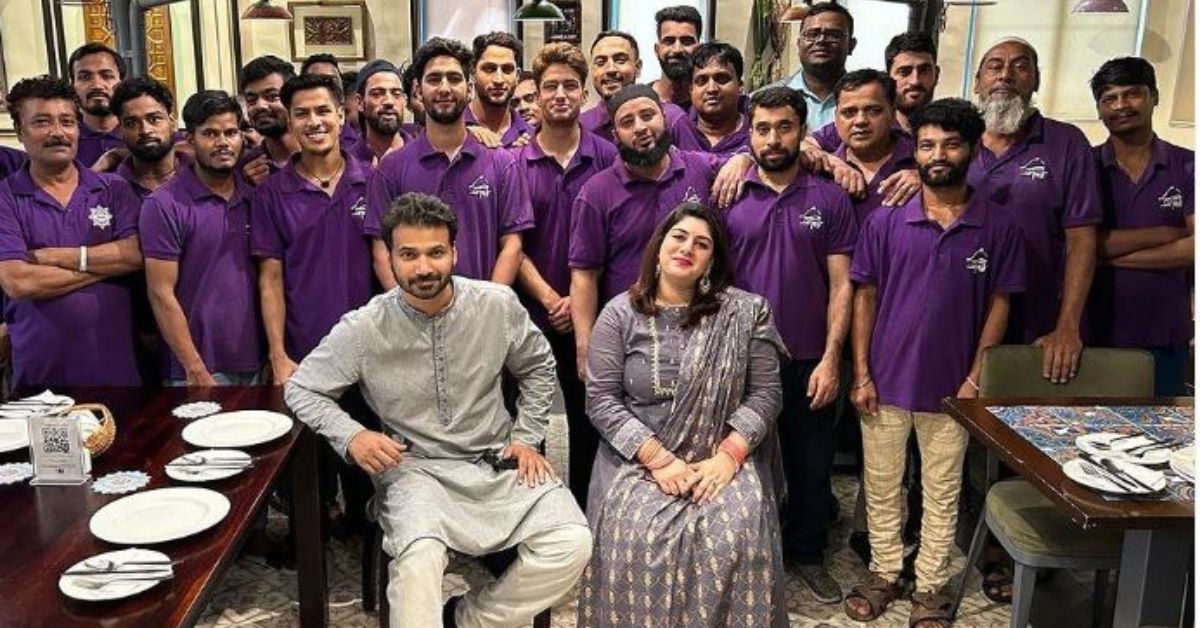
A few months later, when Azmat got in touch with her team, she again invested hefty amounts to restart the work. “But as soon as we were about to announce our launch, the COVID-19 pandemic-induced lockdown was announced. Without a single day in operation, our place was shut. I wasn’t sure what to do anymore,” she adds.
Heartbroken Azmat went to her parents in Srinagar. “By this time, we had exhausted all our finances. I had accepted my failure and went back home. However, my parents encouraged me to not give up because of financial constraints. I gave myself another two months and decided that if somebody does not walk in now then I will shut it even though it would be a very hard decision,” she adds.
As soon as people adjusted to the new normal, Azmat’s place also started welcoming diners in large numbers. “And since then, there has been no looking back,” she smiles. If you found our stories insightful, informative, or even just enjoyable, we invite you to consider making a voluntary payment to support the work we do at The Better India. Your contribution helps us continue producing quality content that educates, inspires, and drives positive change. Choose one of the payment options below for your contribution- By paying for the stories you value, you directly contribute to sustaining our efforts focused on making a difference in the world. Together, let’s ensure that impactful stories continue to be told and shared, enriching lives and communities alike. Thank you for your support. Here are some frequently asked questions you might find helpful to know why you are contributing?

“I would have never in my wildest dreams imagined that my life would take this turn. Not everybody gets such an opportunity. Many people wake up in the morning without any enthusiasm for their work. I am so grateful that finally, I am doing something I am genuinely passionate about,” says Azmat.
Edited by Padmashree Pande. All photos: Sarposh (Instagram)
This story made me
-
97
-
121
-
89
-
167





